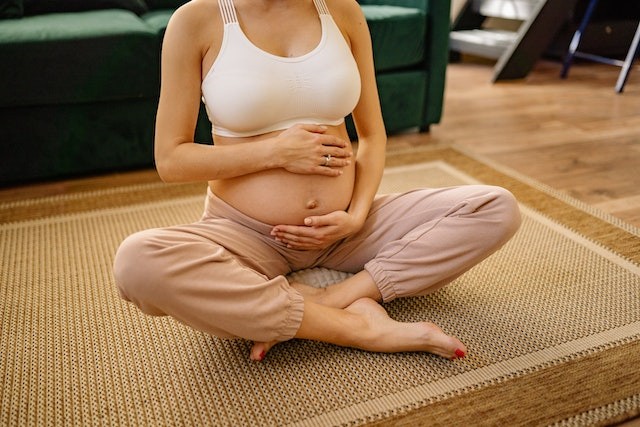
Many women experience morning sickness during their pregnancy. So it's fair to ask, "How early can morning sickness start?" Continue reading to find the answer.
How Soon Can Morning Sickness Start?
According to Cleveland Clinic, about 70% of expecting women get morning sickness - nausea and vomiting during pregnancy. Although it's called "morning sickness," the condition can happen anytime. It only earned such a moniker because many pregnant women experience the most severe symptoms first thing in the morning.
The outlet noted that morning sickness can start as early as the sixth week of pregnancy. However, the exact timing varies. Most experience it before the ninth week of their pregnancy.
Healthline shared the same information, noting that it commonly starts around week six but goes away by week 14. However, the condition also varies as some women experience nausea later in pregnancy.
Also, a few moms reported experiencing the feeling of nausea as early as the fourth week of their pregnancy, which is only the second week after conception. Week 4 is when your period is due to start, and most have a positive pregnancy test at week 5 or 6 of their pregnancy, which is a week or two after the period is due.
Symptoms may start mildly around week 6, get worse, and peak around weeks 9 and 10. However, it usually decreases as you approach weeks 12 and 14 of your pregnancy.
So for those asking, "Can morning sickness start at 1 week?" It's likely a "no." However, we should also consider that women's bodies are different and may react differently to pregnancy.
Read also: Genetic Imprinting: Unborn Babies Use Gene From Dad To Trick Mom's Body, Divert Nutrients to Fetus
Symptoms, Causes, and Solution for Morning Sickness
Per Cleveland Clinic, the cause of morning sickness is unknown, but it could be due to a mix of physical and chemical changes during pregnancy. Thus, it may be caused by the following:
- Low blood sugar.
- An increase in pregnancy hormones like human chorionic gonadotropin (HCG) or estrogen.
- Blood pressure fluctuations.
- Changes in metabolism.
Morning sickness may be worsened by:
- Stress and anxiety.
- Being overtired.
- Eating or smelling certain foods.
- Motion sickness.
- Heat or warm weather.
The common symptoms include upset stomach, loss of appetite, and vomiting. Some said they experienced heartburn or reflux, motion sickness, and hunger pangs, and some felt something was stuck in their throat.
Nationwide Children's suggest some natural remedies for morning sickness. For instance, one can turn to ginger, which comes in many forms. Moms-to-be can take ginger supplements three or four times a day or consume food with ginger, like ginger ale, ginger lollipops, and ginger tea.
Here are also self-care techniques to ease the condition.
- Eat several small meals a day. Eat every 1 to 2 hours to keep your stomach from getting empty.
- Eat foods high in complex carbohydrates like whole wheat bread, pasta, bananas, and leafy vegetables.
- Avoid greasy and spicy foods.
- Sip on cold, clear, and carbonated liquids between meals.
- Keep crackers near your bed and munch on them before you get up.
- Avoid shifting position so suddenly.
- Sniff on a sliced lemon or peppermint if an odor bothers you.
- Try motion sickness or acupressure wristbands.
RELATED ARTICLE : Rate of Premature Babies Falls by 90% During Lockdowns Could Be Due to Reduced Stress and Declining Air Pollution
Check out more news and information on Babies and Pregnancy in Science Times.
© 2026 ScienceTimes.com All rights reserved. Do not reproduce without permission. The window to the world of Science Times.










